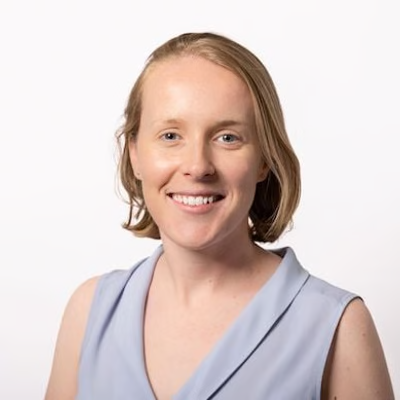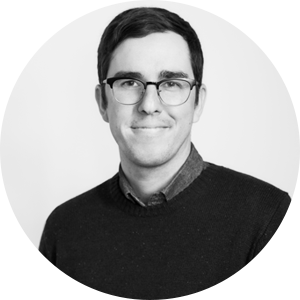Suze Orman tip #1: Time is on your side
A common complaint among younger generations is that they’re financially worse off than their parents. Among other reasons, millennial and Gen Zs can’t afford to buy a home and their cost of living has increased dramatically.
But it's not all bad news.
“Their priority is their youth," says Orman. "Their priority is time." She adds: “If there's anything the younger generation needs to understand, it’s that the key ingredient to any financial freedom recipe is compounding.”
To illustrate, she explains how $100 saved each month can grow into a huge pile of money over a long period of time.
Start saving $100 every month starting at age 25 and ending at age 65. During that time you would stash away $48,000 ($1,200 x 40 years = $48,000). This nest egg would be even larger if you put those savings into an interest-earning account, like a high-interest savings account.
Better still, if you were to put that money into a tax-free savings account (TFSA), Canada’s equivalent of the Roth individual retirement account (IRA) — which is what Orman suggests for Americans — and you invest (and reinvest) your savings to benefit from compound growth, you can make a lot more money.
Most banks and brokerage firms offer TFSAs and they’re easy to open. While you contribute after-tax dollars, the withdrawals are tax-free (thus the name!), meaning any earnings you make are not taxed by the Canada Revenue Agency. You can open a TFSA and use a high-interest savings account or you can choose to invest in stocks, bonds, mutual funds and exchange-traded funds (ETFs).
In 2024, the maximum amount you can contribute to a TFSA is $7,000, but, if you’ve never contributed before, you can contribute up to $95,000!.
For young people at the start of their careers who may not have that higher salary yet, this can be a solid saving option.
Empower your investments with Qtrade
Discover Qtrade's award-winning platform and take control of your financial future. With user-friendly tools, expert insights, and low fees, investing has never been easier.
Start Trading TodaySuze Orman tip #2: Change your mindset
It can be hard for young people to understand why it’s important to save for retirement when they are most likely decades away from that stage of their life.
The problem, according to Orman, is that too many Gen Z and millennials think: “I’m still young. I like going out. What difference can $100 a month make?”
If you start saving $100 every month at the age of 35 rather than 25 — with a 12% annual average rate of return — you’d only have $300,000 by the age of 65, Orman explains. “[Not saving for] those 10 years [would] cost you $700,000,” she says. Even with lower rates of return, the loss can be significant.
Don't miss
- Planning to create a retirement plan? Check out the best retirement plans in Canada
- Don’t have a workplace pension? Not to worry. Learn how to retire without a pension
- Trying to figure out how much you need for retirement? There’s no magic number, but there are tools and strategies that can help you plan
Find ways to maximize your return
Orman also believes that young people should maximize savings incentives. For instance, the financial guru suggests that an investor could earn a 25% rate of return by making use of employer matches in tax-friendly retirement savings vehicles, like RRSPs.
If you commit to this process month in and month out — and you do it for a long period of time — “the amount of money [you] could have would be astronomical,” Orman says.
Unexpected vet bills don’t have to break the bank
Life with pets is unpredictable, but there are ways to prepare for the unexpected.
Fetch Insurance offers coverage for treatment of accidents, illnesses, prescriptions drugs, emergency care and more.
Plus, their optional wellness plan covers things like routine vet trips, grooming and training costs, if you want to give your pet the all-star treatment while you protect your bank account.
Get A QuoteSuze Orman tip #3: Keep it simple
Growing your money does not need to be complicated. If you can save and invest “small amounts” of money every month, it will do the heavy lifting for you, according to Orman.
But it can be hard to hear through the noise and determine which financial products, services and savings vehicles are right for you.
Devin Miller, CEO of SecureSave — an emergency savings platform he co-founded alongside Orman — says young people have “one disadvantage” compared to their parents.
“... the variation in products and services, the types of credit cards and loans, it is so much more complicated than it was in prior generations,” he says. “It's really hard to work your way through and understand what's a good product, what's a bad product, and how to think about it.”
Miller supports Orman’s advice to “keep it simple” by using employer-sponsored savings vehicles, adding: “Very easy things that have existed for a long time are typically the best places to go.”
And if you’re not confident making investment decisions yourself to help your money grow, there are investing apps and online platforms that will do most of the work for you. For instance,
And for young people at the start of their investing journey, there are other accessible platforms that don’t require a big investment to get started and some let you use your spare cash to build your portfolio.
Sources
1. Moneywise: Suze Orman and Devin Miller interview (May 2023)
1. Canada Revenue Agency: CRA TFSA schedule
What to read next
- Saving for retirement? You need to understand that best way to use a registered retirement savings plan
- If you expect to rely on government pensions or anticipate earning more money in retirement (than when you were working), you need to learn how to maximize your tax-free savings account
- Make retirement saving and investing automatic using a robo-advisor
Trade Smarter, Today
Build your own investment portfolio with the CIBC Investor's Edge online and mobile trading platform and enjoy low commissions. Get 100 free trades and $200 or more cash back until March 31, 2025.








